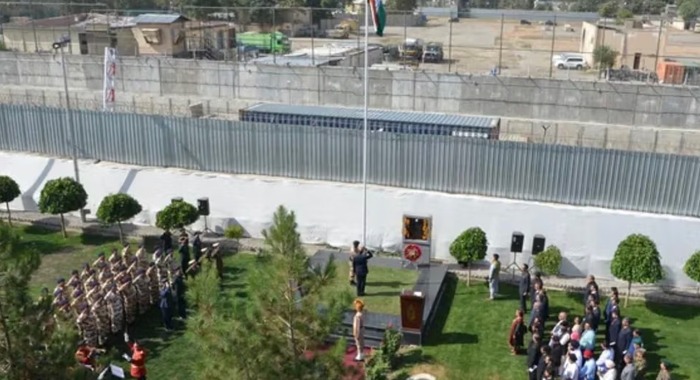India’s decision to fully reopen its embassy in Kabul has reignited regional debate over New Delhi’s strategic ambitions and the potential security implications of its re-engagement with Afghanistan’s Taliban-led government. The move follows the recent visit of Afghan Foreign Minister Amir Khan Muttaqi to New Delhi, marking India’s most significant diplomatic step in Afghanistan since 2021.
In a statement, India’s Ministry of External Affairs said it was “restoring the status of the Technical Mission of India in Kabul to that of the Embassy of India in Afghanistan with immediate effect,” adding that the decision demonstrates its “commitment to deepening bilateral engagement” and contributing to “Afghanistan’s development and humanitarian assistance.”
While New Delhi has framed the decision as a continuation of humanitarian diplomacy, several regional analysts view it as a calculated power play designed to re-establish India’s foothold in Afghanistan’s complex political landscape. Observers in Islamabad and Tehran argue that the move could alter the fragile security equilibrium in the region, potentially reviving old rivalries and proxy influences that had subsided following the U.S. withdrawal.
Officials in Pakistan have repeatedly expressed apprehensions that India’s intelligence presence in Afghanistan has historically coincided with periods of cross-border instability. Security experts caution that the reactivation of India’s full diplomatic mission could once again blur the line between diplomacy and intelligence operations in a country still grappling with militancy and factionalism.
“Afghanistan has long been a theater for regional competition,” one senior security analyst told The Khyber Chronicles. “Whenever a major power re-enters its landscape, it inevitably reshapes the balance of influence and that often comes at the expense of border stability.”
India had closed its embassy in August 2021 after the Taliban’s takeover, reopening a limited technical mission a year later to oversee humanitarian projects. The decision to restore a full-fledged embassy now comes as the Taliban remains unrecognized by most of the international community, with Western governments maintaining that restrictions on women’s rights and civic freedoms continue to block formal recognition.
The timing of the move following Muttaqi’s six-day visit to India has amplified speculation about the nature of the emerging understanding between New Delhi and Kabul’s de facto rulers. Analysts suggest that the Taliban’s outreach to India is part of its strategy to diversify diplomatic channels and seek new sources of economic engagement amid international isolation.
For India, the embassy’s reopening signals more than symbolic diplomacy. It marks an attempt to reassert influence in a region where China, Russia, and Iran have already established operational ties with the Taliban. Yet, experts warn that any expansion of India’s role in Afghanistan could intensify mistrust among neighboring states and complicate regional coordination on security and counterterrorism.
“India’s return to Kabul is not merely a diplomatic gesture it’s a geopolitical message,” a senior regional observer said. “How it plays out will determine whether Afghanistan becomes a bridge for cooperation or a renewed arena of confrontation.”





